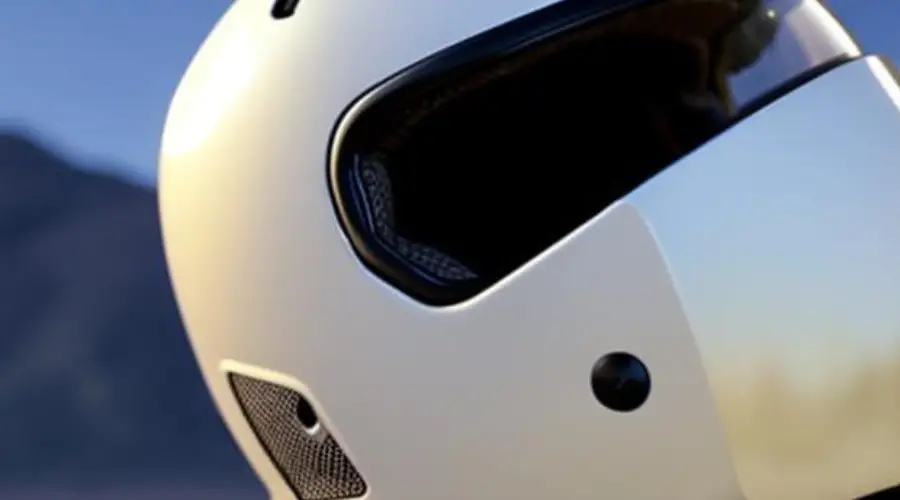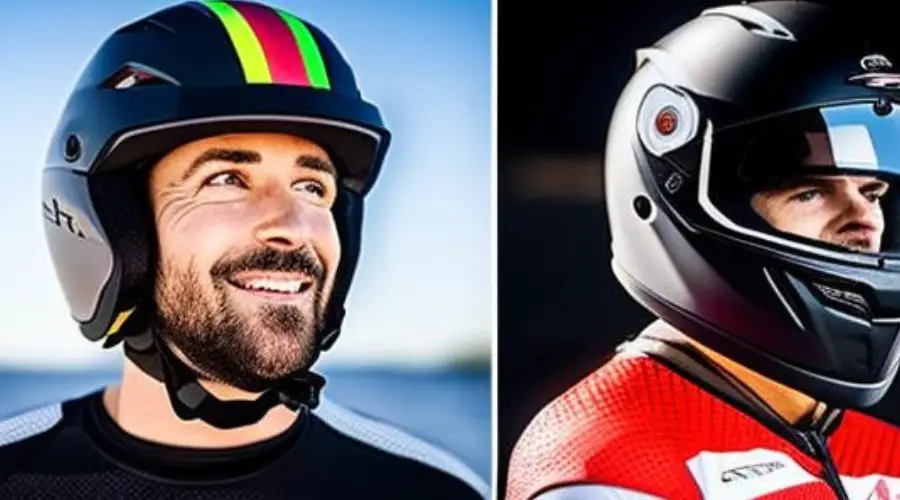As a motorcycle rider, your safety should be your top priority, and one of the most important safety measures is choosing the right helmet. Helmets come in different shapes and styles, but the two most popular types are open-face and full-face helmets. Both have their advantages and disadvantages, and choosing between the two can be a daunting task. In this article, we’ll discuss which helmet is better- open-face or full-face, the pros and cons of each type, and help you make an informed decision.

Open Face Helmets
Open-face helmets, also known as 3/4 helmets, cover the top, back, and sides of your head, leaving your face open. They are popular among cruiser and vintage motorcycle riders, as they offer a classic look and feel.
Pros
- Open-face helmets provide better visibility and peripheral vision than full-face helmets, which can be a safety advantage in heavy traffic or urban areas.
- They are more comfortable in hot weather, as they allow more airflow around your face.
- Open-face helmets are generally lighter and less bulky than full-face helmets, making them more comfortable for long rides.
- They are often less expensive than full-face helmets.
Cons
- Open-face helmets offer less protection to the face, which can be a concern in case of an accident.
- They offer no protection against wind, rain, or debris, which can be uncomfortable and distracting during a ride.
- Open-face helmets are often louder than full-face helmets, due to the lack of face protection.
Full-Face Helmets
Full-face helmets cover the entire head, including the chin and face. They are the most common type of helmet and are preferred by sports bike riders and racers.
Pros
- Full-face helmets offer the most protection to the head and face, which can be a life-saving advantage in case of an accident.
- They provide better insulation against wind, rain, and debris, which can make for a more comfortable ride.
- Full-face helmets are generally quieter than open-face helmets, due to the full-face protection.
- They offer a wider range of features, such as ventilation systems, visors, and chin guards.
Cons
- Full-face helmets can be heavier and bulkier than open-face helmets, which can be uncomfortable for some riders.
- They can be more expensive than open-face helmets.
- Full-face helmets can be less breathable than open-face helmets, which can be a concern in hot weather.
Which One to Choose?
Choosing between an open-face and full-face helmet depends on your riding style, comfort preferences, and safety needs. If you prefer a classic, retro look and prioritize comfort in hot weather, an open-face helmet may be the right choice for you. If you prioritize maximum protection, insulation against weather, and a wider range of features, a full-face helmet may be the better option.
Factors to Consider When Choosing a Helmet
When choosing a helmet, there are several factors to consider:
Safety Standards
Make sure the helmet you choose meets the safety standards of your country or region. In the US, for example, helmets must meet the standards set by the Department of Transportation (DOT) or the Snell Memorial Foundation.
Helmet Fit
A helmet that fits well is essential for safety and comfort. Make sure to try on several helmets and choose one that fits snugly without being too tight or too loose.

Helmet Maintenance
Proper helmet maintenance is crucial for ensuring its effectiveness and longevity. Here are some tips for maintaining your helmet:
- Clean your helmet regularly with mild soap and water, and dry it thoroughly before wearing it.
- Avoid using harsh chemicals or solvents, as they can damage the helmet’s integrity.
- Replace your helmet if it has been involved in an accident, as the impact can weaken its structure even if there are no visible cracks or damage.
- Replace your helmet every five years, even if it hasn’t been involved in an accident. Over time, the helmet’s materials can degrade and become less effective.
FAQs:
Are full-face helmets safer than open-face helmets?
Yes, full-face helmets offer more protection to the head and face than open-face helmets.
Can I wear glasses with a full-face helmet?
Yes, many full-face helmets are designed to accommodate glasses.
Can I wear a full-face helmet in hot weather?
Yes, many full-face helmets have ventilation systems that can make them comfortable in hot weather.
Can I wear an open-face helmet in cold weather?
It is not recommended, as open-face helmets offer less insulation against cold weather.
Can I use a full-face helmet for cruising?
Yes, full-face helmets can be used for any type of riding, including cruising.
Conclusion
Choosing between an open-face and full-face helmet ultimately comes down to personal preference and priorities. While open-face helmets offer better visibility and comfort in hot weather, full-face helmets provide maximum protection and insulation against weather and debris. Whichever type of helmet you choose, make sure it meets the safety standards, fits well, and is properly maintained.
Helmetslab is a website that focuses on providing in-depth reviews and information about different types of helmets, including motorcycle helmets and others helmets. I am writing a post with proper research on the info that helps helmet users.

